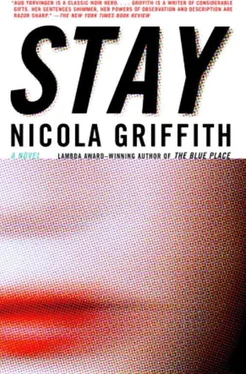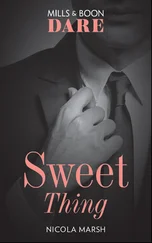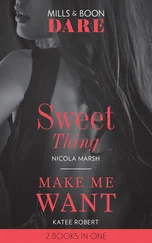Tammy came back carrying the laundry basket; it was full of sacks of flour, and butter, some milk and bread and wine and what looked like my two cast-iron frying pans.
“It’s a surprise,” she said. She set to work, flouring the kitchen counter, pouring and measuring and kneading.
The fire roared. I used the tongs to unfold the iron bar hinged to the sidewall of the fireplace, and pulled it out across the flames. Like the fire, it gave me deep satisfaction. It had been a tricky bit of mortaring but now it was positioned just right to hang a pot or kettle over the flames—not that I’d need it once the kitchen had a range, or even when the stove was in place.
Tammy seemed to be making some kind of flat cake. “How much longer until the coals are hot enough to cook with?”
“Half an hour.”
Runnel of rain on the roof, pop and hiss of green wood on the fire, slap and whisper of dough. I stretched out on the unfinished floor and let myself drift for a while. Noises from the kitchen counter changed: Tammy had half a dozen cakes lined up and had moved on to wrapping a variety of vegetables in aluminum foil.
Hot yellow nuggets piled above and below the grate. I raked a few onto the front hearth. They began to cool to orange and go gray around the edges. I raked them back. “Ready when you are.”
The vegetables went in first. She held up the silvery packages one by one, “Corn, onions, butternut squash, sweet peppers,” and put them in the fire. She got up again and brought back one of the skillets, covered with a wet cloth.
“That’s my pillowcase.”
“I had to get creative. I needed wet cloth.”
Get creative. I could find out which hospital Karp was in. Go make sure he wouldn’t wake up.
Tammy wrapped the cakes in the pillowcase, put them in the skillet, put the skillet to one side in the hearth, then raked a handful of coals and ash over the lot, just like something out of a Foxfire book.
“The cakes and the vegetables should cook a bit before the bacon goes on,” she said. “I thought we’d have some wine.”
I got up and found the bottle and glasses and corkscrew and brought them back to the fireplace. It was a good rioja. Tammy had been paying attention; it no longer surprised me.
The smell of applewood and roasting corn mingled with red wine as I poured. I handed Tammy her glass.
“To your cabin,” she said. “May you have many dinners in front of this fire, with people you care for.”
I couldn’t see it, but I raised my glass, and drank.
She pushed up the sleeves of her sweater. “It got warm fast.”
“Wood’s a good insulator.” Now that the windows were glazed and the fire working, the place was more or less livable as it stood. Hook up the toilet to the septic system, flush it using buckets filled at the pump outside. You’d have to leave before the snows, though, or stay until spring…
Karp’s hospital room might be guarded.
“Tell me about those cakes you’re cooking.”
“Ash cakes. Ken was telling me about them at the party. Some old toothless woman showed Adrian how, and Adrian showed Ken as soon as he could be trusted not to set the house on fire. That was when he was eight, he said. Or maybe nine. Anyhow, they’re supposed to taste good—if they don’t burn to a crisp. Which is where the wet pillowcase comes in. It sort of steams them at the same time, he said. Poor old Ken, keeping house at eight.”
There were worse things. “What were you doing at that age?”
“Eight? Eight was when I learned to ride a bike. And how to fall off a pony.” She laughed. “God, I wanted a pony so bad. Then my father took me to this riding school, where I found out that horses are big scary animals that stink and won’t do as they’re told, and it’s a long way down if you fall off.” She sighed. “I was Daddy’s princess. That’s what he called me, his princess. I think he liked it that I couldn’t ride. It kept me his on some level. What about you?”
Self-analysis from Tammy. “I learned to ride when I was nine. In England. With the daughter of one of my mother’s friends.” Galloping over the Yorkshire moors, wild as a lynx, with Christie Horley. Another life I had left.
“You looked quite nostalgic for a while there.”
“Nine is a good age,” I said. By then I had realized that although my mother behaved as if she loved me, and maybe even wished that she did, she didn’t. My father had been in Chicago that summer.
Tammy was studying me.
“What?”
“You used to scare me. You always scared me, even when Dornan was there. Always judging, and usually not in other people’s favor. Not in mine, anyhow. But since you got back from—Since you got back, you’ve been different. That night, when—” She squirmed and glanced away. “It was a pretty sad seduction attempt, I know, totally embarrassing, but the way you reacted… I thought you were going to strangle me. You looked crazy. Not the kind of person you could ever imagine being nine years old. You seem more human now. And now I’ve embarrassed myself again. Jesus, it’s hot in here.” She put her glass down and pulled off her sweater. When she picked up her glass again, the wine was a rich red against the cream of her bodysuit—which, like the sweater and the wine, she had bought that morning in Asheville. It was strange, seeing her in clothes I had not bought or lent her, drinking wine she had selected without my advice, without needing me there.
“You’re different, too.”
“Yep. Since I—Well, I’ve learned plenty. The world can be big, and stink, and it hurts if you fall off, but hey, it’s worth trying, mostly, and what doesn’t kill you… Well, it doesn’t kill you.” She lifted her glass. “To learning experiences, even though they suck.”
“To not being nine years old and at the mercy of the world.” Like Luz.
She got up, came back with the second skillet. “Time to fry that bacon.”
The bacon hissed and shrank and turned translucent, and when it browned we filled our plates with it, and corn and squash and onion, and the doughy-looking things that were the ash cakes. I tried one. It tasted of cinders. “It’s good,” I said. It’s easy to lie to people you’re leaving.
I ate deliberately: onion sweet and smoky and soft, corn bursting rich and yellow under my teeth, and the bacon melting in places but chewy in others. And then the plate was clean.
It didn’t matter about Luz. She was nothing to do with me. Sending money was as much as I needed to do. More. I hadn’t put her with the foster parents in Arkansas. I didn’t have to help her, or any of the others—because, oh, suddenly it was so clear that there were others. Many, many others.
I stood up. “Wait there,” I told Tammy.
Outside it was raining harder than ever, thick drops the size of raisins, but cold and hard, and it was quite dark. On the way back, I stuck the file in my shirt to keep it dry.
“You’re dripping,” she said when I returned.
I sat closer to the fire and pulled out the folder. She recognized it, but made no comment.
I opened it. “They’ve been very careful.”
“Who?”
“The agency who handled all this.” I fanned the sheaf of papers on the floor. “Not one mention of the agency name, not a single letter or fax or printed e-mail with a person’s signature.”
“Then how do you know there’s an agency involved?”
“The bar code. The brochure. They’re professionals. Someone is doing this a lot.”
“They could be, you know, just a regular adoption agency.”
“Adoption agencies don’t usually farm out the adopted to foster parents.”
“Jesus.” She stared at the documents. “How many kids do you suppose there are?”
Читать дальше












